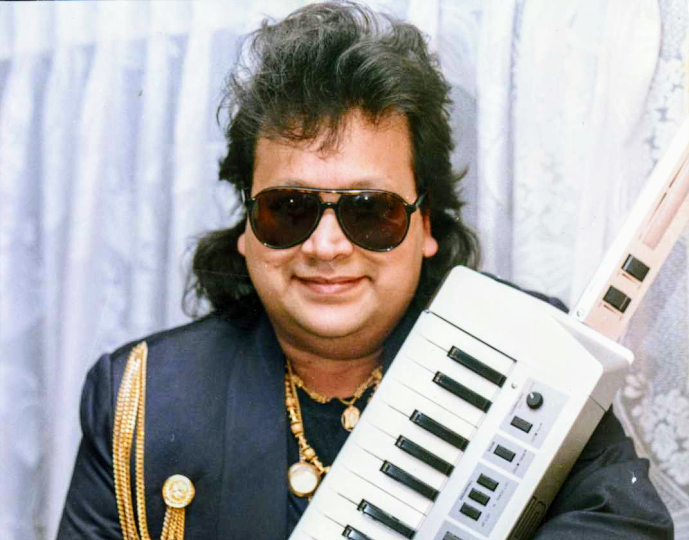17 Songs to Remember Bappi Lahiri
He was a master of disco as well as melody, inspiring musicians across the world. Here’s a look at some of his most memorable compositions.
Bappi Lahiri was like no other music director. The talented musician was known as much for his ability to compose a tune as he was for his style and unique way of being. This was best showcased in his film work across languages and styles.
Bappida showcased his versatility in a career that spanned nearly five decades. He was still in his 20s when the melodious “Chalte Chalte” sung by Kishore Kumar from 1976’s film of the same name became a runaway hit. This was followed by tracks “Aap Ki Khatir” from 1977 and the timeless “Bambai Se Aaya Mera Dost”.
Bappida ushered in a new sound in the early Eighties with disco, creating a memorable subgenre for the film world with compositions like “I Am Disco Dancer” from 1982’s Disco Dancer and “Raat Baaki” from 1982’s Namak Halaal, songs that sound as modern today as they did 40 years ago.
His songs were an early inspiration for many of the pioneers on the Indian EDM scene. Writer Kenneth Lobo summed it up in our 2015 cover story on the origins of electronic dance music in India:
“Lahiri cut plenty of disco bangers throughout the 1980s (check out his hat tip to ‘I Feel Love’ on ‘Ramba Ho Ho Ho’ in Armaan (1981). He continued in this vein with the Amitabh Bachchan-starrer ‘Raat Baki’ (Namak Halaal, 1982), ‘Disco Station’ (Haathkadi, 1982), ‘Yaar Bina Chain Kahan Re’ (Saheb, 1985) and ‘Zoo Zoo Zooby Zooby’ (Dance, Dance, 1987) and ‘Jhoom Jhoom’ in Kasam Paida Karne Wale Ki (1984). The latter takes place inside Studio 84, named after disco’s most famous club Studio 54 in New York in the Seventies.
“The apex of his achievement, however, is 1982’s ‘Disco Dancer’, which is a nostalgia trip not just for Indians but for kids growing up across the former Soviet Union. Lahiri’s experiments with synthesizers influenced one Charanjit Singh, his contemporary in Bollywood, who would go on to achieve fame around the world as one of the pioneers of EDM.”
Bappida’s music continued to impact global musicians much after the disco era. His single “Jimmy Jimmy Aaja Aaja” from 1982’s “I Am Disco Dancer” was given a new life by Sri-Lankan Brit M.I.A. who turned “Jimmy” into a global dance hit in 2007. And ironically (and sadly enough), it was Bappida’s composition with the late Lata Mangeshkar, 1981’s “Thoda Resham Lagta Hai” from the film Jyoti that became the basis for Truth Hurt’s 2002 international Top 10 hit “Addictive.”
Along with dance numbers, melodies continued to fill out his soundtracks including the superhit “Pag Ghungroo Bandh” from the same film and “Intehaa Ho Gayi” from 1984’s Sharaabi.
As years went by and many newer and younger music directors entered the foray, Bappida managed to retain his prominence thanks to the ability to compose joyful upbeat songs that even if the film was not going to be memorable, the tracks certainly would be!
While many music directors liked to stay behind the scenes, Bappida was one of the first to himself be part of the spotlight. In many ways, this helped put composers directly in front of audiences and gave us a greater appreciation for their talent and compositions. While he was inspired by many (and many of his tracks were direct lifts of Western songs), he does leave behind a solid and highly impressive catalog, even more colorful than Lahiri was himself.
As we pay tribute to the late great music director, here are some notable compositions from the artist, including a few singles he himself sang on, which in recent years we got to enjoy with tracks like “Ooh La La” from 2011’s The Dirty Picture, “Tune Mari Entriyaan” from 2013’s Gunday and the remake of his own song “Tamma Tamma” from 2017’s Badrinath Ki Dulhania.







